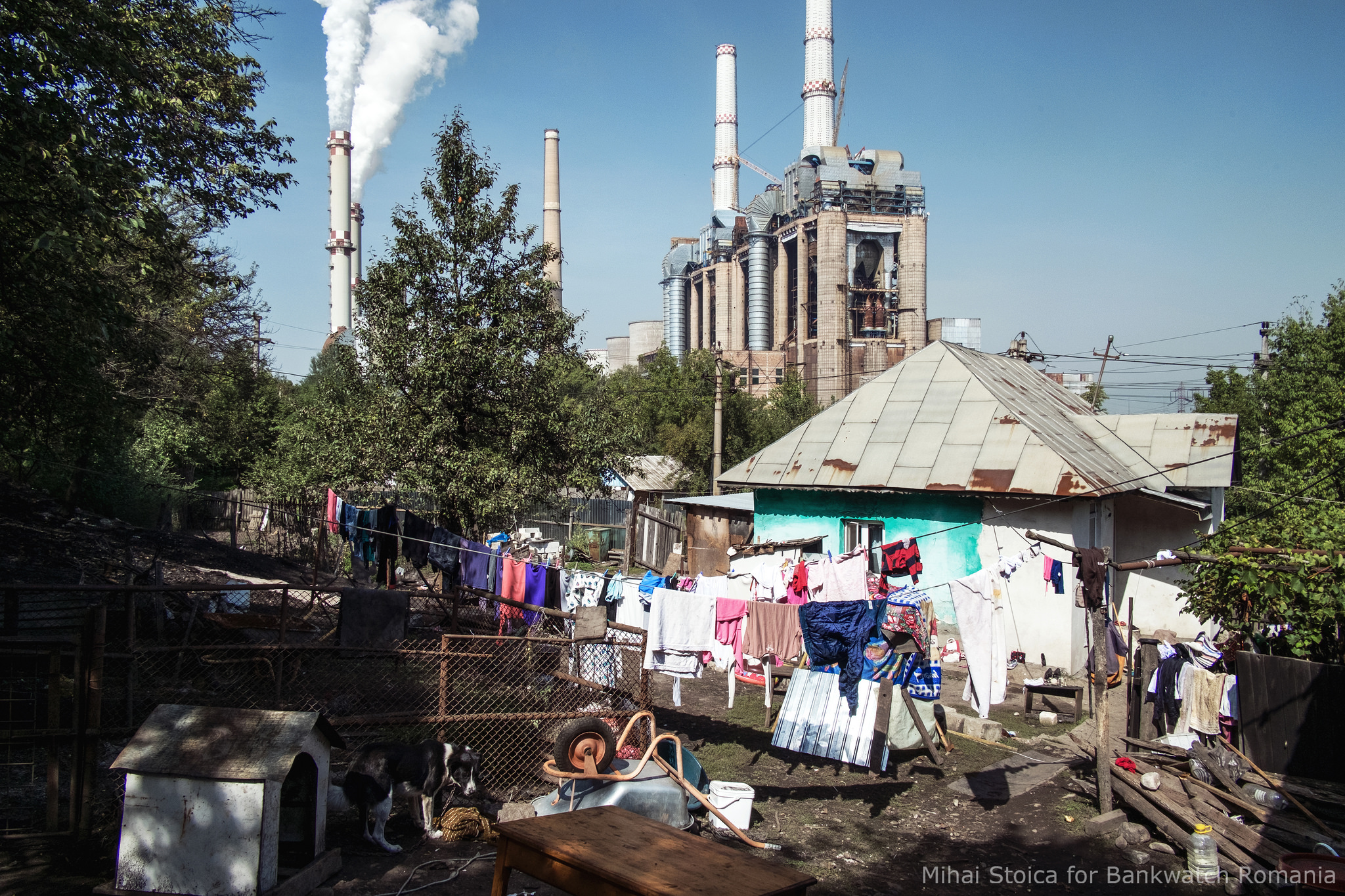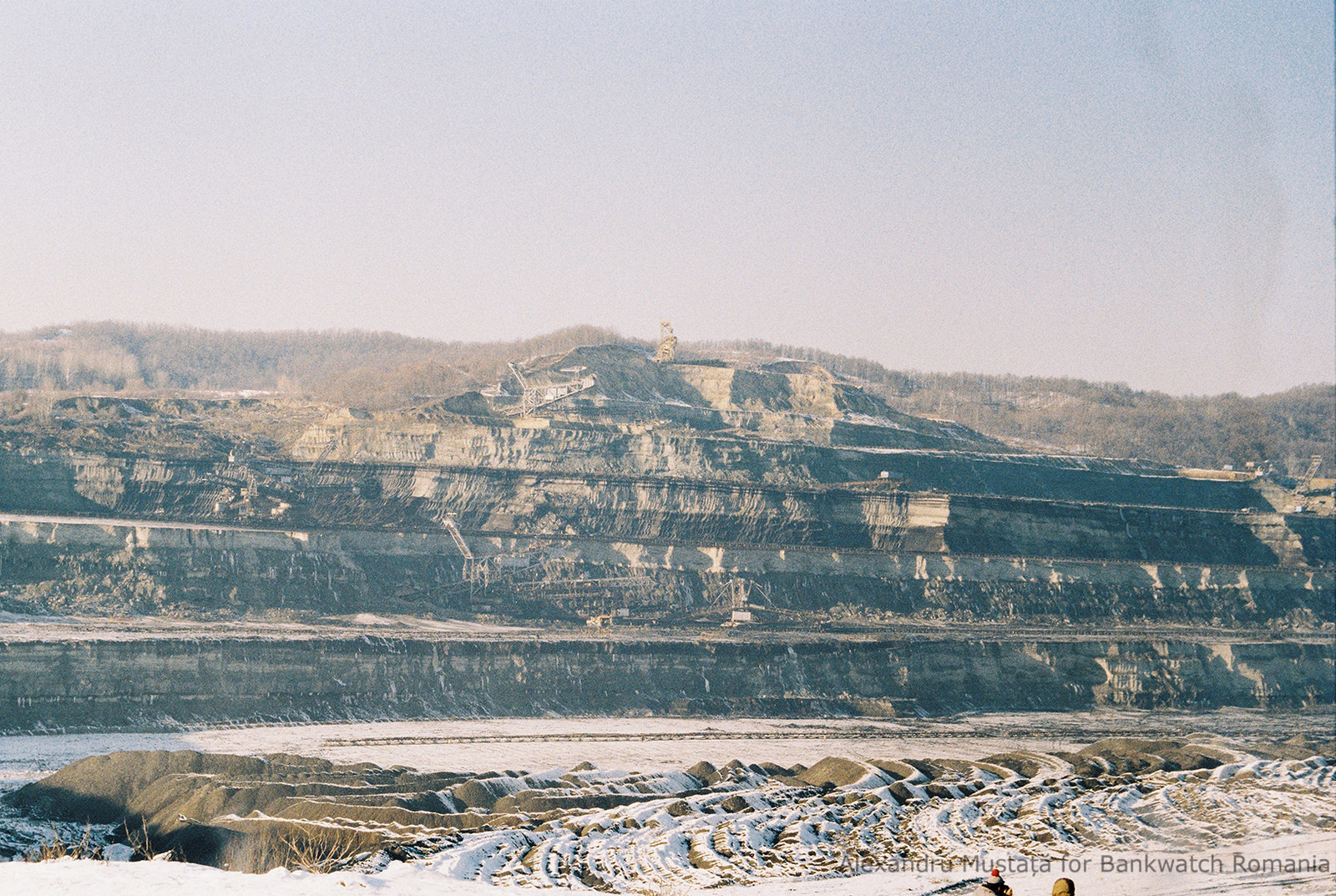Rovinari unit 7, Romania
CANCELLED: The Romanian Government has been negotiating for several years with the Chinese Government to build a new 600 MW unit at the lignite power plant in Rovinari, Gorj County. The new unit would be built on the site of Units 1 and 2, currently decommissioned. A new up and running plant would pollute the whole region for at least 40 more years, a coal plant’s average lifespan.

Stay informed
We closely follow international public finance and bring critical updates from the ground.
Background
In December 2012 Oltenia Energy Complex (state owned company) signed a memorandum of understanding with China Huadian Engineering Co. Ltd for setting up a project company and the construction of a 500 MW lignite-fired unit at Rovinari. The initial information was that the new unit would be built at an estimated cost of one billion euros. Since then, more memorandums of understanding have been signed between the Romanian and the Chinese company or the respective Governments, laying down the steps to create a Romanian-Chinese joint-venture, which would implement the project. The most recent one dates to September 2015, when it was reported that the unit would have an installed capacity of 600 MW and would cost EUR 847 million. The project team has met since them, the latest visit of a Chinese delegation to Rovinari taking place in August 2017.

In January 2013, the general manager of the Oltenia Energy Complex said the new unit will export the electricity to Austria and Turkey. China Huadian conducted a pre-feasibility study in 2014 for the construction of this unit at Rovinari, indicating the need to dismantle some of the existing infrastructure, something that would increase the costs of the project and which the representatives CE Oltenia disagreed with at the time. In addition, China Huadian Engineering Co. requested customs exemptions for equipment imported from China, demanding at the same time a long term power purchase agreement or a guaranteed price for coal, which, under European legislation, may be considered illegal state aid. China Huadian would ensure the full financing of the investment, being the main shareholder of the joint venture IPP (Independent Power Producer) that would be created and CE Oltenia would have a share of under 9%.
If the project went ahead, the new unit would be located next to the town of Rovinari, increasing existing air pollution levels from the other 4 units. The lignite would be supplied from the nearby open-pit mines – Tismana I and II, Rosia, Pinoasa, all owned by the same Oltenia Energy Complex – which would require expansion of production capacity. Extending these mines would mean clearing huge land areas, in most cases accompanied by massive deforestation.

Since 2012, Bankwatch Romania has filed a series of complaints in court, requesting the annulment of illegally issued deforestation permits and mine expansion permits which did not assess impacts on the environment. Almost all the actions have been successful in court. After an infringement procedure was initiated by the European Commission, all expansions were reassessed. However, the new permits fail to evaluate the cumulative impact of the mines, and are therefore again the subject of Bankwatch Romania court action, one of them being currently suspended. To date (May 2018) no environmental impact assessment procedure has been launched.
In short:
The existing power plant:
- Part of Oltenia Energy Complex
- 4 units installed every 330 MW each
- Three functional units: 3, 4 and 6; unit 5 undergoing modernisation
- Location: southwestern Romania, Gorj county
- Year of commissioning: 1972
- Fuel used: lignite
- Environmental integrated permit expired on 31.12.2017
New power plant
- China Huadian + CEOltenia
- 1 unit of 600 MW
- Fuel: lignite (6 million tonnes per year)
- Life expectancy: 40 years
- Significant social and environmental impacts
Latest news
Western Balkans decarbonisation is urgent: but the EU enlargement package is still sending mixed signals
Blog entry | 10 November, 2023The European Commission’s annual reports on the Western Balkan countries’ EU accession progress vary considerably on decarbonisation, sending mixed messages on coal and especially gas. The EU needs to take a more consistent approach if the region is to achieve decarbonisation by 2050 at the latest.
Read moreBosnia and Herzegovina’s draft NECP: The good, the bad and the ugly
Blog entry | 20 July, 2023Bosnia and Herzegovina’s draft NECP finally looks to the future, plans no new fossil fuel power plants and significantly scales back unrealistic hydropower plans. But existing coal plants are to keep operating illegally and the draft is furtive about coal-to-biomass plans.
Read moreNew report – deadly legal breaches by Western Balkan coal plants increased in 2022
Press release | 28 June, 2023In 2022, deadly air pollution from the Western Balkans’ coal power plants increased compared to 2021, according to the fifth edition of Bankwatch’s Comply or Close report, published today (1). Emissions of all three regulated pollutants – sulphur dioxide (SO2), dust and nitrogen oxides (NOx) grew, and for the first time, the region’s overall limit for NOx was breached.
Read moreRelated publications
Letters to companies shortlisted to bid for the Plomin coal power plant
Advocacy letter | 8 November, 2012 | Download PDFFour companies have been shortlisted and invited to submit binding bids for the construction of unit C at the Plomin coal power plant in Croatia. Croatian Bankwatch member group Zelena Akcija/Green Action sent letters to all four companies with information on the legal and economic challenges of the project and the local opposition against it.
The EBRD’s new Mining Operations Policy: A commentary on consultation process and content
Briefing | 2 November, 2012 | Download PDFThe long awaited EBRD Mining Operations Policy was released last week without much noise. It has taken the EBRD more than 3 years to prepare a document which had raised hopes it could improve the bank’s activities in the mining sector. Most of these hopes, however, have not been fulfilled.
New Slovene legal requirements for Šoštanj lignite power plant (TEŠ 6) regarding CCS
Advocacy letter | 17 October, 2012 |On September 8, 2012 new legislation entered into force in Slovenia that requires TEŠ to prepare an assessment of the CCS readiness for its new Unit 6. Pursuant to this legislation, proper assessment of the CCS readiness for the Unit 6 has not taken place yet. As a result, TEŠ has not met the legal requirements regarding the CCS assessment and therefore it is not possible to determine its CCS readiness under the Slovene law. Letter available as pdf: Letter to the European Investment Bank >>> Letter to the European Bank for Reconstruction and Development >>>
